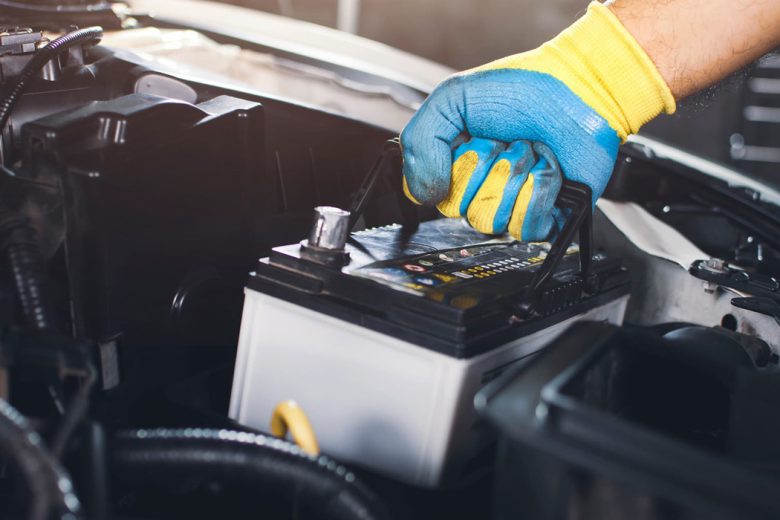Car batteries are an important part of any car because they provide the power to start the engine, run tools and keep the ride smooth. Properly maintaining your car’s battery is important to ensure it lasts long and works properly. Read this article for some simple but useful tips for maintaining your car battery. These tips can help you keep your battery in good condition.
1. Check the Battery Regularly:
An easy way to keep your car battery in good condition is to check it regularly for signs of rust and wear. Check the battery box for cracks or leaks and the connections for corrosion. It is important to address any issues immediately to prevent the problem from getting worse, such as a bulging battery box or rusted connections.
2. Make Sure Your Battery is Clean:
If corrosion occurs at the battery terminals, the battery may not function properly. Remove the wires from the terminals and clean them. Then use a mixture of baking soda and water to wipe away the corrosion. Once the cables are clean, reconnect them and make sure they are properly connected.
3. Check the Battery Fluid Level:
The acid content of some car batteries must be checked regularly. Carefully remove the battery cap and check the fluid level. If the amount of water is too low, add distilled water to reach the correct amount. Be careful not to overcrowd the cells as this can damage them.
4. Ensure Battery Safety:
Make sure the battery is properly connected to prevent the battery from moving while driving. Loose batteries can damage connections, causing electrical problems.
5. Don’t Overload:
Overcharging the battery may damage the battery and shorten its lifespan. Make sure the charger you use is suitable for the type of battery you have and follow the manufacturer’s instructions carefully.
6. Remove the Battery Box:
If you don’t use your car for a while, you may need to use a battery charger to charge the battery. Battery Assistant monitors your battery’s charge and adds more power as needed so it doesn’t drain.
7. Don’t Take Short Trips:
If you make a lot of short trips, your alternator may not have enough time to fully charge the battery. If you can, combine short rides with longer rides to give your battery a chance to recharge.
8. Check the Battery Regularly:
Testing your battery regularly can help you catch problems before they worsen. To find out the voltage of your battery, you can use a voltmeter or take it to a mechanic.
9. Make Sure the Battery is Fully Charged:
If you don’t use your car regularly, it’s best to invest in a trickle charger to keep the battery charged. A trickle charger ensures that your battery has the right amount of charge so that it is ready when you need it.
10. Replace the Battery If Necessary:
No matter how well you take care of it, your battery will need to be replaced at some point. If your engine is slow to start, makes a clicking noise when you try to start, or has a battery warning light on the panel, you may need to replace the battery. If you notice any of these symptoms, you should replace the battery immediately to avoid getting stuck.
Conclusion:
Properly maintaining your car’s battery is important to ensure it lasts long and works properly. By checking fluid levels, checking and cleaning your battery regularly, and keeping it charged, you can help prevent problems and ensure your car starts every time. You can also extend the life of your battery by following the manufacturer’s instructions for maintenance and replacement schedules. If you follow these simple steps, you can keep your car running with ease and avoid the hassle and expense of a dead battery.
FAQs:
1. How often should I check my car’s battery?
Check your car battery at least once a month, especially before a long trip or during very bad weather. Check for signs of corrosion, leakage and wear. Also make sure that the connections are clean and that the connections are secure.
2. Can I fill the battery with tap water to add more electrolyte?
If you want to add electrolyte to the battery, you must use pure water. Minerals and other elements in tap water can damage batteries and shorten their lifespan.
3. What should I do if my battery is broken or leaking?
If you notice any leakage or damage to the battery, remove it immediately. To ensure your safety and protect your car’s electrical system from damage, remove the battery and install a new one.
4. Is it logical that my battery will lose charge over time?
Car batteries lose their charge over time, especially if they are not used regularly. Using a trickle charger or moving the car regularly can help keep the charge level stable and extend the life of the battery.
5. How long should my car’s battery last?
The lifespan of a car battery depends on many factors, such as frequency of use, maintenance and weather conditions. In most cases, car batteries last three to five years. By taking good care of your battery and having it regularly maintained, you can extend the life of your battery.



